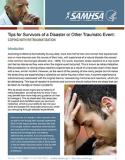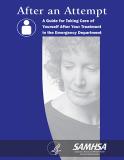
This brochure provides a working definition and 10 guiding principles for recovery from mental illness and substance use disorders.
Units per Product
Download
What's Recovery? SAMHSA's Working Definition
File Type: PDF
File Size: 380 KB







